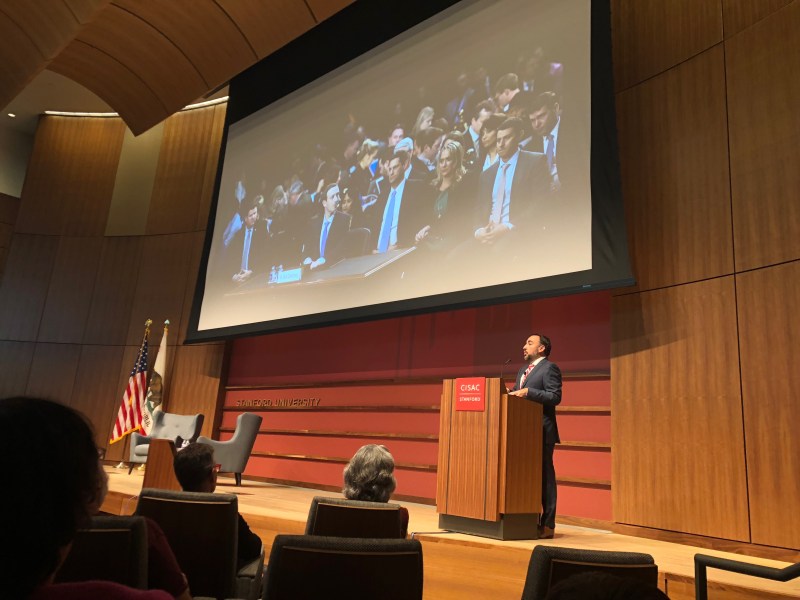On Tuesday, Alex Stamos, former Chief Security Officer of Facebook and current adjunct professor, spoke at the Hoover Institution about cybersecurity’s effect on society and the accountability of technology platforms for protecting their users.
At the start of this year, Stamos joined Stanford as a William J. Perry Fellow at the Center for International Security and Cooperation (CISAC), an adjunct professor at the Freeman-Spogli Institute and a visiting scholar at the Hoover Institution. He teaches the class INTLPOL268: “Hack Lab,” which approaches cybersecurity issues through interactive lectures and hands-on labs.
At the event, co-sponsored by CISAC and the Hoover Institution, Stamos stressed the importance of holding private companies that collect data from their users accountable for keeping that information secure.
“There’s been some real, fundamental building blocks in keeping tech from responding effectively to [cybersecurity breaches],” he said. “The first is that the tech companies have always resisted any kind of [governmental] regulation.”
He reasoned that proper regulations can prevent cybersecurity breaches, ease political tensions and dissolve political boundaries.
However, he suggested that it can be hard for individual countries to enforce consistent regulations, since they often think only in the context of their own country, as opposed to thinking about their place globally.
Stamos also addressed technology’s negative effect on journalism. He explained that since larger, more reliable news outlets lack funding, they create paywalls and require readers to purchase a subscription, whereas free information is made available by anyone who can post on social media. This leads to a society where, according to Stamos, “rich people get good journalism, and poor people get clickbait.”
After the talk, Stamos’s Teaching Assistant for INTLPOL268, Alex Zaheer ’19 reinforced the importance of addressing cybersecurity in policy.
“I think this conversation is the first of many that will happen on this campus,” he told The Daily. “For a long time, Stanford has been trying to … harness Silicon Valley’s technical talent to learn about political issues.”
In an attempt to foster those conversations, Stamos is collaborating with a team called the Stanford Internet Observatory that is working to connect non-governmental organizations with Silicon Valley in the hopes of bridging the divide between technology, political science and society.
“I don’t believe that we’re totally without solutions here, and I do think we can do a lot better in having these discussions,” Stamos said. “It’s the fact that people don’t remember the failures of the past that make them excited for the potential of the future.”
This article has been corrected to more accurately reflect an idea Stamos presented in his talk. A previous version of the article cited the General Data Protection Regulation as a good example of governmental regulation, though he meant the opposite. This has since been removed from the article.
Contact Leily Rezvani at lrezvani ‘at’ stanford.edu.
